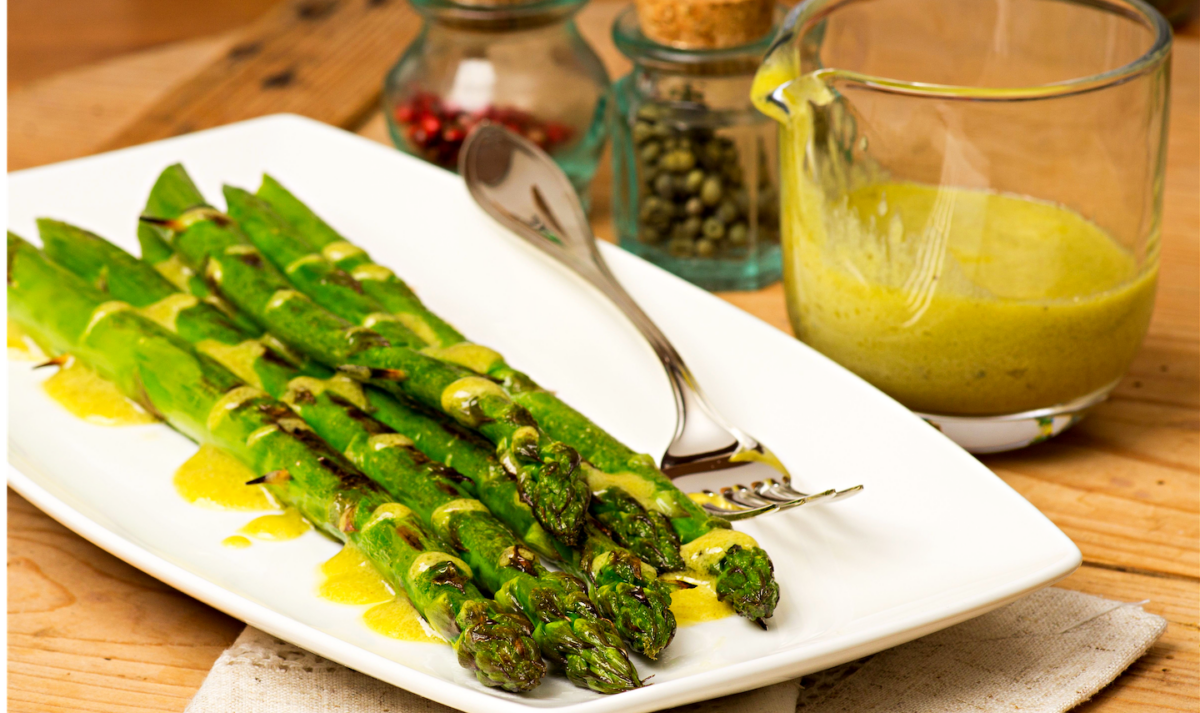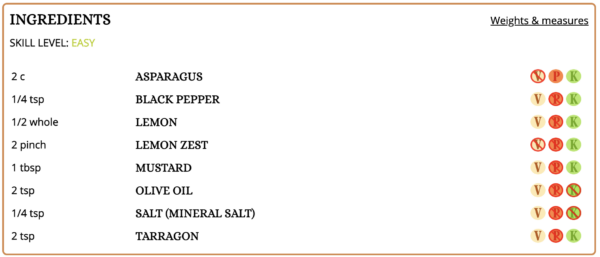


Earthy, crunchy asparagus brightens your plate with its declaration of springtime. Drizzled mustard sauce awakens you with its tangy heat. Aromatic and earthy, tarragon adds a layer of rustic complexity to entice the palate. What a dish for spring!
Servings: 3
Prep Time: 5 min
Cook Time: 15 min

- Break the hard bottoms from the asparagus stalks and discard.
- Roast the asparagus on medium heat in 1 teaspoon olive oil for five minutes, or until edges begin to brown.
- Asparagus should be served crispy on the outside, and slightly crunchy on the inside. Undercooked asparagus is too crunchy, while overcooked asparagus is too mushy.
- Optional: Add roasted tomatoes to the mix.
- Combine the lemon zest, juice, tarragon, Dijon mustard, and remaining olive oil, blending in a food processor. Drizzle over roasted asparagus and toss gently to coat. Serve.
Is there any vegetable that trumpets the arrival of spring more than asparagus? The first sign of asparagus at the farmers’ market brings sighs of delight, as well as a competitive rush to bag the treasured stalks. The bright green spears are an equal favorite at the Passover and Easter tables, and evoke memories of celebration and unfurling spring flowers.
Black pepper, mustard, and tarragon supply pungency to this preparation, perfect for kickstarting and supporting the digestive process. Lemon juice and olive oil, both essential components of seasonal gallbladder cleanses, boost the body’s natural inclination for springtime detoxification.
It is natural to lose the appetite for several weeks in late February and early March. As the heaviness of winter gives way to the lightening of springtime, you may crave fresh spring greens and simpler foods. It’s okay to eat less during these periods, as the body gets its energy by metabolizing the winter fats that insulate your skin. If you observe the seasons in your diet, you will notice that springtime’s harvest matches the desire for bright, light greens.
As the body starts to dissolve fats in the spring, the blood thickens and congeals because of excess oiliness. Tarragon is a warming, bitter herb that thins and purifies the blood, flushing out sluggish, stagnant winter blood and replacing it with fresh spring blood. Asparagus and tarragon are diuretics that help flush water weight, eliminating puffiness in your skin.
As the seasons change, you might feel a sense of being stuck or frustrated, emotions that are rooted in a congested gallbladder. As the blood thickens, so does the bile in the gallbladder, obstructing the natural cleansing process. Flushing the gallbladder in late winter is a traditional strategy to prevent gallbladder attacks and relieve frustration. Lemon juice, olive oil, and the bitterness of tarragon all help to cleanse the gallbladder and get those juices flowing.
You can learn your body type and whether asparagus with mustard and tarragon is a good fit for your body type. Find out by taking this free, easy quiz. Time to complete: approximately one minute.
Republished from JoyfulBelly.com
